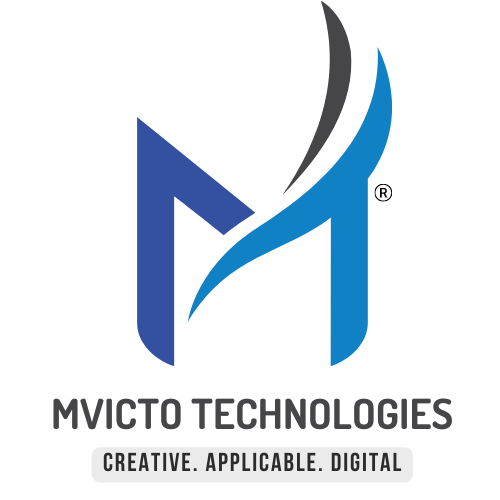
In today’s digital age, a website is more than just an online presence; it’s your storefront, your marketing hub, and your customer service center, all rolled into one. For businesses in Singapore, a strong online presence is critical to compete in this tech-savvy nation. But with a plethora of website platforms available, choosing the right one can feel like navigating a maze.
This guide cuts through the confusion. We’ll break down the leading website platforms, weigh their pros and cons, and offer tailored recommendations for your specific business needs, all with a focus on the Singaporean market.
Why the Right Platform Matters
Choosing the wrong platform can lead to:
- Limited functionality: Struggling to add features essential to your business (e.g., online store, booking system).
- Design restrictions: being stuck with a generic template that doesn’t reflect your brand.
- Poor user experience: frustrating visitors with slow loading times or clunky navigation, especially on mobile devices.
- Scalability issues: Facing difficulties as your business grows and your website traffic increases.
Current statistics on AI adoption in SMEs:
-
25% of businesses are currently using AI.
-
43% of firms have no plans to use AI technology.
-
76% of IT professionals in SMEs believe their organizations should invest in AI.
-
79% of IT professionals in SMEs see AI as a net positive.
-
Up to 29% of small businesses have already adopted AI.
-
82% of New Zealand SMEs are experimenting with or actively using AI tools.
These figures highlight the current state of AI adoption among SMEs, indicating a gradual but increasing uptake of AI technologies.
Future Forecasts for AI in SMEs
The future of AI in the SME sector looks promising. Forecasts predict a significant increase in AI adoption in the coming years, driven by the increasing availability of affordable AI solutions, growing awareness of its benefits, and the need for SMEs to remain competitive.
Key forecasts for the future of AI in SMEs:
-
70% of SMEs plan to invest in AI technology by 2025.
-
AI has the potential to increase productivity by up to 30% in some sectors, leading to cost savings of up to $140 billion by 2025.
-
The global AI market is projected to reach $190 billion by 2025.
-
94% of business leaders believe that AI will be crucial for success in the next five years.
-
AI is expected to contribute $15.7 trillion to the global economy by 2030.
Top Website Platforms: A Head-to-Head Comparison
Let’s dive into the most popular choices for Singaporean businesses:
1. WordPress
- Pros:
- Flexibility: Highly customizable with thousands of themes and plugins.
- SEO-friendly: Excellent for ranking well in search results.
- Large community: Extensive support and resources available.
- Cost-effective: Open-source platform with affordable hosting options.
- Cons:
- Technical knowledge: Requires some technical know-how for setup and maintenance.
- Security: Vulnerable to hacking if not properly maintained.
- Ideal for: Businesses with a blog, content-heavy websites, and those needing custom functionalities.
2. Shopify
- Pros:
- E-commerce focus: Specifically designed for online stores, with built-in features like payment gateways and inventory management.
- User-friendly: Easy to set up and manage, even for beginners.
- Mobile responsive: Ensures your online store looks great on all devices.
- Cons:
- Transaction fees: Charges a fee per transaction unless using Shopify Payments.
- Limited customization: Less flexible than WordPress in terms of design and functionality.
- Ideal for: E-commerce businesses of all sizes, from startups to established brands.
3. Wix
- Pros:
- Drag-and-drop interface: Incredibly easy to use, even for those with no design experience.
- Wide range of templates: Offers beautiful, professionally designed templates for various industries.
- All-in-one solution: Includes hosting, domain, and security in one package.
- Cons:
- Limited scalability: May not be suitable for large or complex websites.
- SEO limitations: Can be challenging to optimize for search engines compared to WordPress.
- Ideal for: Small businesses, startups, and individuals looking for a simple and affordable website solution.
4. Squarespace
- Pros:
- Stunning templates: Known for its visually appealing and modern templates.
- Easy to use: User-friendly interface with drag-and-drop functionality.
- Strong customer support: Offers excellent customer support via email and live chat.
- Cons:
- Limited app integrations: Fewer third-party integrations compared to WordPress or Shopify.
- Pricing: Can be more expensive than other platforms, especially for e-commerce features.
- Ideal for: Businesses focused on visual branding, such as photographers, artists, and designers.
Local Insights: What Works Best in Singapore?
- Mobile-First Approach: Singapore boasts one of the highest smartphone penetration rates globally. Ensure your chosen platform prioritizes mobile responsiveness.
- Multilingual Support: Cater to Singapore’s diverse population by choosing a platform that supports multiple languages.
- E-commerce Growth: Singapore’s e-commerce market is booming. Platforms like Shopify are particularly well-suited for this trend.
- Local Payment Gateways: Integrate with popular payment gateways in Singapore, such as PayNow and GrabPay, for a seamless checkout experience.
Making the Final Decision
Consider these key factors when choosing your platform:
- Your budget: Factor in costs for hosting, domain registration, themes, plugins, and ongoing maintenance.
- Technical expertise: Assess your comfort level with website development and management.
- Your website’s purpose: Define your primary goals (e.g., online sales, lead generation, brand awareness).
- Future growth: Choose a platform that can scale with your business.
Need Expert Guidance?
Still unsure which platform is right for you? Mvicto Technologies specializes in website design and development across all major platforms. We’ll work with you to understand your business needs and create a website that drives results. Contact us today for a free consultation!

0 Comments